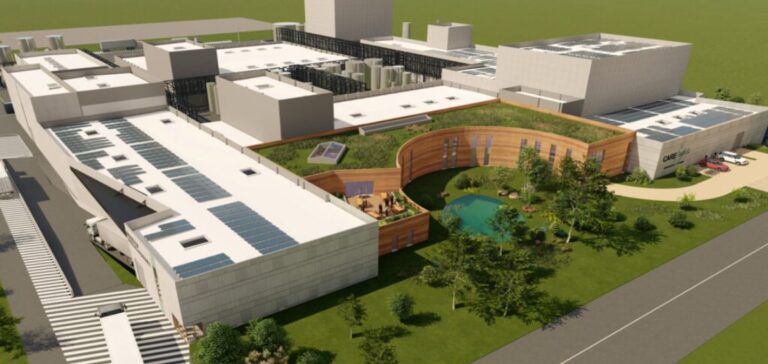Carester, a Lyon-based company, has laid the foundation stone for its rare earth recycling and refining plant in Lacq, Pyrénées-Atlantiques. The project, named Caremag, aims to reduce Europe’s dependence on China, which currently supplies 98% of the rare earths used in Europe. This strategic sector, essential for permanent magnets in technologies such as electric vehicles and wind turbines, is at the heart of the energy transition. The plant is expected to be operational by the end of 2026, with the creation of 92 direct jobs.
French-Japanese Funding
The total funding for the project amounts to €216 million, split between the French government and Japanese partners. The French government has contributed €106 million in grants and repayable advances through the France Relance and France 2030 programmes, along with a green industry tax credit. Meanwhile, the Japanese companies Japan Organization for Metals and Energy Security (JOGMEC) and Iwatani Corporation have invested €110 million in equity and shareholder debt through a joint venture, Japan France Rare Earths Company.
Production Capacities
The Caremag plant will focus on recycling permanent magnets, with an annual target of 2,000 tonnes processed. It will also refine 5,000 tonnes of mining concentrates to produce around 600 tonnes of heavy rare earths, primarily dysprosium and terbium, representing about 15% of the current global production. Additionally, it will produce 800 tonnes of light rare earths, mainly neodymium and prasodymium, used for manufacturing permanent magnets in strategic sectors such as electronics and robotics.
Strategic Partnerships
To secure the commercialization of its production, Carester has signed long-term agreements with several industrial partners. Automotive manufacturer Stellantis has committed to purchasing a portion of the light rare earths produced at Lacq. Furthermore, the joint venture Japan France Rare Earths Company will distribute 50% of the heavy rare earths production to Japanese industrial partners. These agreements strengthen Carester’s position as a key player in the rare earths supply chain, crucial for the global energy and technology industries.
Industrial Context
This project is part of a broader European effort to reduce dependence on rare earth imports, which are mainly controlled by China. Several initiatives have recently emerged to encourage the recycling of these critical materials. In 2024, the start-up MagREEsource opened a pilot plant in Isère to produce magnets from recycled materials, with an annual capacity of 50 tonnes. Additionally, Belgian group Solvay operates a plant in La Rochelle for the production of rare earth-based products and is set to begin producing oxides for permanent magnets. These projects highlight the growing importance of rare earth recycling in Europe at a time when demand for these materials is surging.






















